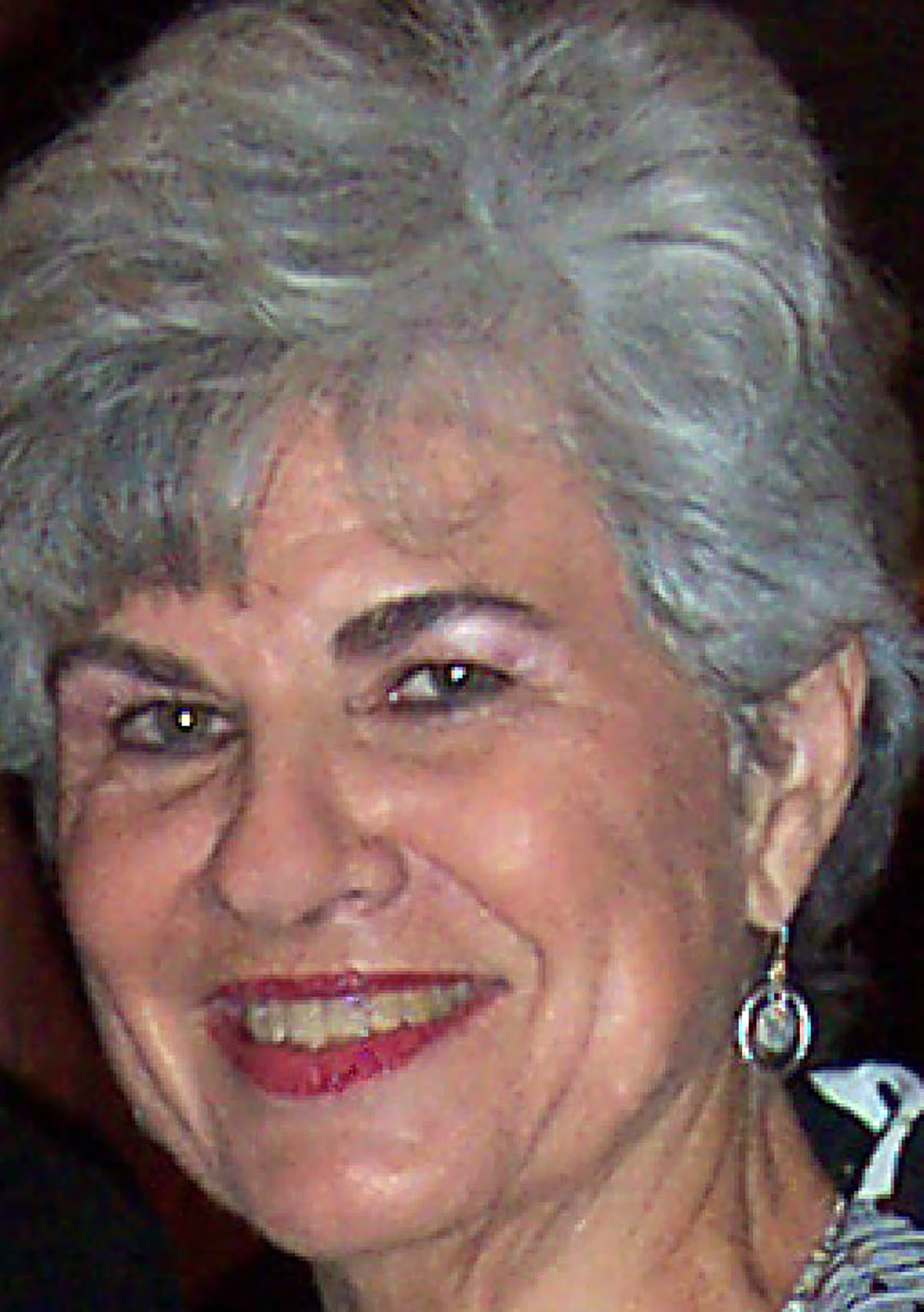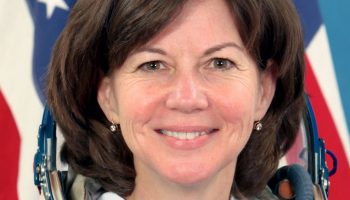Worried about the opportunity cost of a U.S.-Soviet arms race, U.S. President Dwight D. Eisenhower spoke to the nation three days before the end of his second term in January 1961 and warned Americans of “the acquisition of unwarranted influence, whether sought or unsought, by the military-industrial complex” and the “potential for the disastrous rise of misplaced power.”
James H. McCartney was at the White House covering Eisenhower’s speech for the Washington bureau of the Chicago Daily News. Like many who heard it, he took note of Ike’s warning.

Unlike most, he remembered and acted on it for the rest of his life. For 30 years thereafter, McCartney focused on national security issues for Knight Ridder newspapers. His work was published in 31 newspapers nationwide.
At 3 p.m. on Saturday in the Hall of Philosophy, his widow, Molly Sinclair McCartney — a newspaper journalist herself for nearly 35 years — will speak about the book concept her husband was working on at the time of his death from cancer in 2011.
Her Contemporary Issues Forum lecture title, “America’s War Machine: Vested Interests, Endless Conflicts,” is the same as that of the book she researched and wrote based on her husband’s notes and partial manuscript.
“Jim and I met in Washington, D.C., through mutual media friends and we were married in 1984,” McCartney said.
Knight Ridder, then the second-largest newspaper chain in the U.S., owned the Miami Herald, for which McCartney had been reporting on consumer-related stories for a decade before moving to Washington.
Originally from Baytown, Texas, just north of Galveston Bay, McCartney had wanted to go into journalism from the time she was in elementary school.
“I was on my junior high and high school newspapers, and it just kept getting better and better,” she said.
Serving 1,500 students, the paper she edited her junior year was like a miniature tabloid newspaper in every way.
For her senior year, McCartney was accepted into the distributive education program and spent half her days in school and the other half working on The Baytown Sun’s switchboard. Upon graduation, she was assigned to write stories in the women’s department, and a year later she became its editor.
“That was great,” she said. “You did everything. It was basic journalism 1959 style.”
At night she attended Lee College in Baytown. Within two years she was hired as a court reporter by the Houston Post, where she remained for seven years (attending night classes at the University of Houston) before moving to The Atlanta Constitution, and soon after, to the Miami Herald, which she said was one of the best regional papers in the country during the 1970s.
As a Nieman Fellow in journalism at Harvard University from 1977 to 1978, McCartney concentrated on business regulation and international affairs, and spent time in Canada and Japan. She rounded out the year with a three-month solo trip around the world, during which she traveled through 14 countries.
In Washington, D.C., a year later, she began working full time at The Washington Post doing general reporting and covering consumer issues and local government. She also attended Georgetown University, from which she earned her bachelor’s in liberal studies.
Meanwhile, her future husband — a Nieman Fellow in the class of 1964 — had been reporting on national security issues from about 30 countries. These included Vietnam, the Soviet Union, the Middle East and Europe. He covered the Vietnam War, Arab-Israeli conflict, arms industry, arms control negotiations, nuclear weapons policy, and other security challenges and dilemmas extensively and tenaciously.
For his writing, he received the 1989 Edward Weintal Prize for Diplomatic Reporting from the School of Foreign Service at Georgetown University.
He developed a reputation as a steady, persistent questioner intent on accurately informing people rather than buttressing government. And as president of the prestigious Gridiron Club, McCartney skewered Washington’s political elites.
In retirement in Washington, he taught at Georgetown as an adjunct professor for 13 years, and continued writing his regular column for Knight Ridder and, starting in 2000, for the Bradenton Herald, in addition to speaking widely about foreign and defense policy issues. Once the couple moved to Florida, Molly McCartney served as vice president of Common Cause Florida and a board member of the Pierian Spring Academy, now called the Ringling College Lifelong Learning Academy.
“Jim was so very well versed,” McCartney said. “After he retired, particularly after we moved to Florida, people would want to know what’s really happening in Washington. He was a raconteur; a very good storyteller. After George W. Bush invaded Iraq in 2003, he spoke about it and people said, ‘You must write a book.’ He was still writing regular columns with personal things he pulled in as he was covering things. He could have opinions after he left reporting.”
There was a period of day-to-day shock after her husband died, McCartney said. At one of his memorial services, the woman who made sure he spoke at the library every year asked her what was going to happen to the book.
“I said, let me see if there’s enough for a book,” McCartney said.
She sent everything to McCartney’s bureau chief in Washington, who wrote back that the guts were there but there was a lot more work to do.
“It took a while,” she said “I had been listening to this all the time. As a reporter, I knew how to research. Also, I very quickly applied to the Wilson Center in Washington, in the Reagan Building.”
As a Woodrow Wilson Public Scholar from March through May 2012, McCartney was given an office, researchers to assist her, access to all of the Center’s materials and to invaluable librarians, and a very important credential — her title — enabling her easier access to people she needed to contact. She said the Wilson Center gave her a jump start on America’s War Machine.
“Jim wanted people to go away (from his speaking engagements) being aware,” McCartney said. “This is his version of the truth. Many others have also been talking and writing about it. This is Military-Industrial Complex 101 … and there’s blood involved.”




